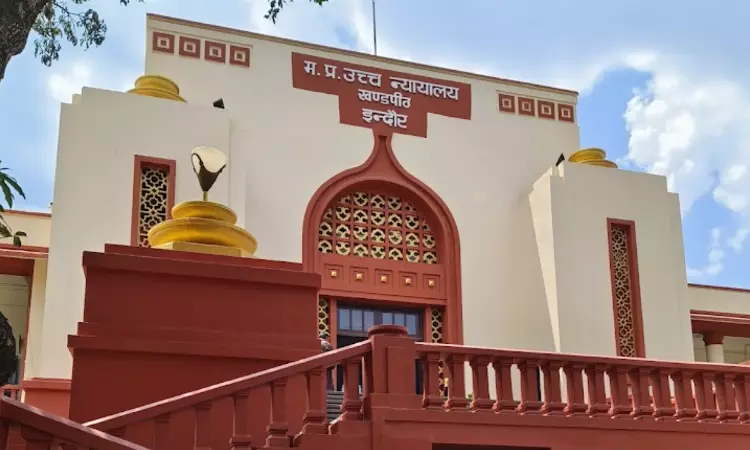Saturday, February 15, 2025
Deposits up to ₹5L safe, RBI assures New India customers
No rooms in Prayagraj hotels even as mega event nears end
No rooms in Prayagraj hotels even as mega event nears end
Kapil.Dixit@timesofindia.com 15.02.2025
Prayagraj : Even after completion of five major snans, including three amrit snans of Makar Sankranti, Mauni Amavasya and Basant Panchami at the ongoing Maha Kumbh there seems to be no space available for occupants in hotels. The coinciding of the ongoing Maha Kumbh and wedding season has puzzled the occupants who are running from pillar to post to get hotel rooms booked. Apart from pre-booking for the Maha Kumbh and wedding season, the majority of hotel room seekers are trying to get space within the city limits, assuming that traffic jams or other problems could play spoilsport in their celebrations if they book hotels in trans-Ganga and trans-Yamunabased hotels or marriage pandals. There are some families who have postponed marriage or other marriage related events till next month.
For instance, one Sanjay Kumar is taking rounds of hotels to get rooms booked for his son’s marriage. Apart from the availability, the tariffs of hotels, including luxury or budget, guest houses, and paying guest facilities are also giving sleepless nights to seekers. Currently, the tariffs of rooms in hotels located in posh Civil Lines, SP Marg, MG Marg, or the railway station, are quite high since the commencement of the Maha Kumbh, and the majority of rooms in all luxury and budget hotels are booked in advance.
On Friday, one Rahul and his family from Lucknow were searching for a hotel room with basic amenities and security in all of the city for Feb 22 as they planned to revisit the Maha Kumbh. After an online and offline search, the family found that the rooms were priced high until March 11. He said, “We are looking for affordable rooms as many of our relatives and friends have planned to visit Kumbh. We found the majority of hotel rooms booked in advance and fewer chances of getting affordable rooms.”
KGMU docs remove woman’s oral tumour
KGMU docs remove woman’s oral tumour
15.02.2025
Lucknow : Doctors from the oral and maxillofacial surgery department at KGMU’s faculty of dentistry performed surgery on a woman suffering from a tumour in her mouth. The tumour was located on her lip, making it difficult for her to eat, drink and breathe. After the surgery, she fully recovered. Sufiya Bano, 37, a resident of Indrauli, Sitapur, initially developed a small pimple on her upper lip two years ago. She ignored it at first, but within 2-3 months, it grew into a tumour.
Her family took her to a local hospital, where doctors performed surgery. However, about a year later, the tumour began growing at double the speed, eventually closing her mouth completely. Eating and drinking became difficult, and breathing, especially at night, was extremely challenging.
As her condition worsened, her family brought her to KGMU. On Friday, Prof Hariram and his team removed the tumour. He expressed hope that the tumour would not recur. The patient is now able to breathe normally. The surgical team included Dr Ranjita, Dr Nirmal Chaurasia, Dr Krishna, Dr Sania Zia, Prof Shefali Gautam from the anaesthesia department and nurse Maya Rajput.
VTU directs colleges to refund students’ fees
Not only do colleges not refund, but they also threaten to not return the original certificates. Some of them go to the extent of asking for full course fees,” said Mithesh Kumar Moodukonaje, founder of National Pre-University Students, Parents and Teachers Association. “Students can email their complaint to UGC fee samadhan portal along with fees paid receipt, admission cancellation intimation, etc., marking the email ID of the college too,” he said
RBI freeze on co-op bank hits depositors TIMES NEWS NETWORK Mumbai : Funds of lakhs of depositors and several cooperative housing societies are stuck with New India Cooperative Bank after it was placed under moratorium by RBI on Thursday. RBI said the restrictions were imposed “due to supervisory concerns” over “recent material developments in the bank, and to protect the interest of depositors...” The action follows a spot inspection and a complaint filed by the bank’s chief compliance officer with the Economic Offences Wing over alleged fund misappropriation by staff. A police source said a bank official would be called to record his statement. RBI has dissolved the bank’s board for mismanagement and appointed an administrator and a committee of advisors to restore operations and revive the bank. Bankers speculate that operations are likely to be taken over by another cooperative bank. Anxious depositors thronged branches across the Mumbai region. They were greeted by banners in the name of the “Acting CEO” that said deposits up to ₹5 lakh were insured and would be released “in around 90 days”. Deposits coming under the ₹5 lakh insurance cover over 90% of the bank’s 1.3 lakh depositors. However, no bank staff were available to answer queries. Pandurang Kamble, an account holder in the Virar branch for the last 22 years, said, “I have ₹5 lakh in fixed deposits. My salary is also credited in this account. If there is no refund after 90 days then what? My wife is a cardiac patient, what will happen to her once I break this news? Govt should step in and help us.” The bank has 28 branches in Maharashtra and Gujarat. New India Cooperative Bank was founded as Bombay Labour Co-operative Bank in 1968 by late parliamentarian George Fernandes. It was renamed as New India Cooperative Bank after the Emergency. The bank reduced its accumulated losses from ₹30.7 crore in FY23 to ₹22.8 crore as of Mar 31, 2024. However, its advances portfolio decreased by ₹155 crore (11.7%) to ₹1174.8 crore as of Mar 31, 2024. Deposits increased by ₹ 30.5 crore (1.3%) to ₹2,436 crore as of Mar 31, 2024. Advances portfolio stood at ₹1175 crore, working capital was ₹2,997 crore, and total reserve funds were ₹292.9 crore. Under RBI directions, the bank is restricted from allowing withdrawals from savings or current accounts but can set off loans against deposits under certain conditions. Essential expenditures such as salaries, rent, and electricity bills are permitted as per RBI’s directions. It cannot also grant or renew loans and advances, make investments, incur liabilities (including borrowal of funds and acceptance of fresh deposits), disburse payments, enter into compromises, or dispose of properties or assets without RBI’s prior approval.
The bank reduced its accumulated losses from ₹30.7 crore in FY23 to ₹22.8 crore as of Mar 31, 2024. However, its advances portfolio decreased by ₹155 crore (11.7%) to ₹1174.8 crore as of Mar 31, 2024. Deposits increased by ₹ 30.5 crore (1.3%) to ₹2,436 crore as of Mar 31, 2024. Advances portfolio stood at ₹1175 crore, working capital was ₹2,997 crore, and total reserve funds were ₹292.9 crore. Under RBI directions, the bank is restricted from allowing withdrawals from savings or current accounts but can set off loans against deposits under certain conditions. Essential expenditures such as salaries, rent, and electricity bills are permitted as per RBI’s directions. It cannot also grant or renew loans and advances, make investments, incur liabilities (including borrowal of funds and acceptance of fresh deposits), disburse payments, enter into compromises, or dispose of properties or assets without RBI’s prior approval.
Over 75,000 to appear for CBSE board exams
HC stays order on returning ‘thaali’ to Lankan woman
HC stays order on returning ‘thaali’ to Lankan woman
CUSTOMS SLEUTHS FILE APPEAL
Sureshkumar.k@timesofindia.com 15.02.2025
Chennai : A newly wed Sri Lankan woman, whose ‘thaali’ was seized by Chennai Customs officials a t airport citing rules concerning personal gold j ewellery, will have to wait for the return of the mangalsutra for some more time, as adivision bench stayed a single judge order asking Customs to return it to her. In his order on Jan 31, a single judge ordered the return of 133 grams of gold jewellery, including the ‘thaali’, seized from Thanushika, a Sri Lankan, at the Chennai airport. On Friday, however, a division bench of Justice S S Sundar and Justice C Saravanan stayed the single judge order, on an appeal moved by the customs department. The single judge had justified the order by observing that, as per our customs, it is normal for a newly married person to wear jewellery in such quantity.
He added that the officers, while conducting searches, must respect the customs of every religion in this country and that it was unfair on the part of the customs officials to remove the ‘thaali’ from the petitioner. In another order, the single judge ordered the return of 135 grams of bangles seized from one Sabeena Mohammed Moidenn on the ground that she wore the bangles on her hands without any secrecy or concealment.
Aggrieved, the customs preferred an appeal against the orders. When both the appeals came up for hearing, the customs contended that, as per rules, articles valued over ₹50,000 carried through the airports are taxed. They added that an order exempting jewellery worn by persons from the purview of such tax would affect the economy of the country. Concurring with the submissions, the court granted an interim stay against the orders of the single judge
Friday, February 14, 2025
Amid PG med admission chaos, aspirants at a loss
Amid PG med admission chaos, aspirants at a loss
Yogita.Rao@timesofindia.com 14.02.2025
Mumbai : The woes of postgraduate medical aspirants continue this admission season. While they appeared for NEET-PG last Aug, many are still waiting to secure seats. The counselling process eventually commenced in Nov, but many are still frustrated with the delays and confusion. Even as the Directorate General of Health Services’ (DGHS) medical counselling committee (MCC) set a deadline of Feb 15 to close the admissions across the country in the third round, the state is yet to start the third round, creating confusion for aspirants. A fresh set of eligibility guidelines released by the MCC for the stray vacancy round on Wednesday, which contradicts the state’s pro cess, has stumped a few. Since the state is yet to declare the allotment list in the third round, candidates who may have a chance in the state are unable to secure seats in other states, said parent representative Sudha Shenoy.
“If astudent secures a seat in the third round somewhere else, and his/her name appears in the Maharashtra state list in the third round, they will lose aseat in their home state. If they let go of the other seat and they do not even get a seat in Maharashtra counselling, they will be out of the process. Due to the delay in Maharashtra, they are unable to take a definitive call,” she said. In the circular released by MCC, the authority specified that the candidates who did not join their allotted seats through the central process in round three are ‘not eligible’ to participate in the upcoming stray vacancy round, but it said that the ‘not reported’ candidates are eligible for state counselling. Parent Brijesh Sutaria, though, said that the state considers only the allotment list for making students ineligible. A CET cell official said the same circular mentions the candidates can contact the state counselling authorities for information on state quota seats and therefore the state guidelines will be followed. The official also said the state’s third list allotment will be released in a day or two and they are awaiting an updated merit list from the National Board of Examinations. The state has written to MCC explaining the situation and to seek a deadline extension.
Karnataka High Court Issues Procedure For Change Of Name In Birth Register Till Legislature Brings Appropriate Law
Three students, youngest in Class XII, arrested for digital arrest scam
[Senior Citizens Act] Son-In-Law Must Vacate Father-In-Law's House In Case Need Arises For Peaceful Income For Senior Citizen U/S 23 Of The Act: MP HC
NEET 2024 | Vacant NRI PG Seats In Private Colleges To Be Included In Last Round Of Counselling For General Quota: State To Madhya Pradesh HC

Governor Can't Punish Guilty Govt Official By Dismissal Under Rules, Can Only Withhold/Withdraw Pension For Misconduct: Madhya Pradesh HC

Baggage Rules Apply Only To Luggage Of International Travellers, Not To 'Reasonable Amount' Of Jewellery Worn In-Person: Madras HC

-
விவேக் குவித்த சொத்துகள்; மலைத்துப்போன வருமான வரித்துறை..! MUTHUKRISHNAN S சசிகலாவின் அண்ணி இளவரசியின் மகன் விவேக் குவித்துள்ள சொத்துகள்;...
-
கொடிகட்டிப் பறந்த எம்.ஜி.ஆர் நூற்றாண்டில் கொடிக்கும் சின்னத்துக்கும் சிதறும் அதிமுக By -திருமலை சோமு | ...
-
Too much frisking at PG NEET centres irks candidates By Express News Service | Published: 08th January 2018 02:23 AM | CHENNAI: Can...
.jpg)



















.jpg)



.jpg)









